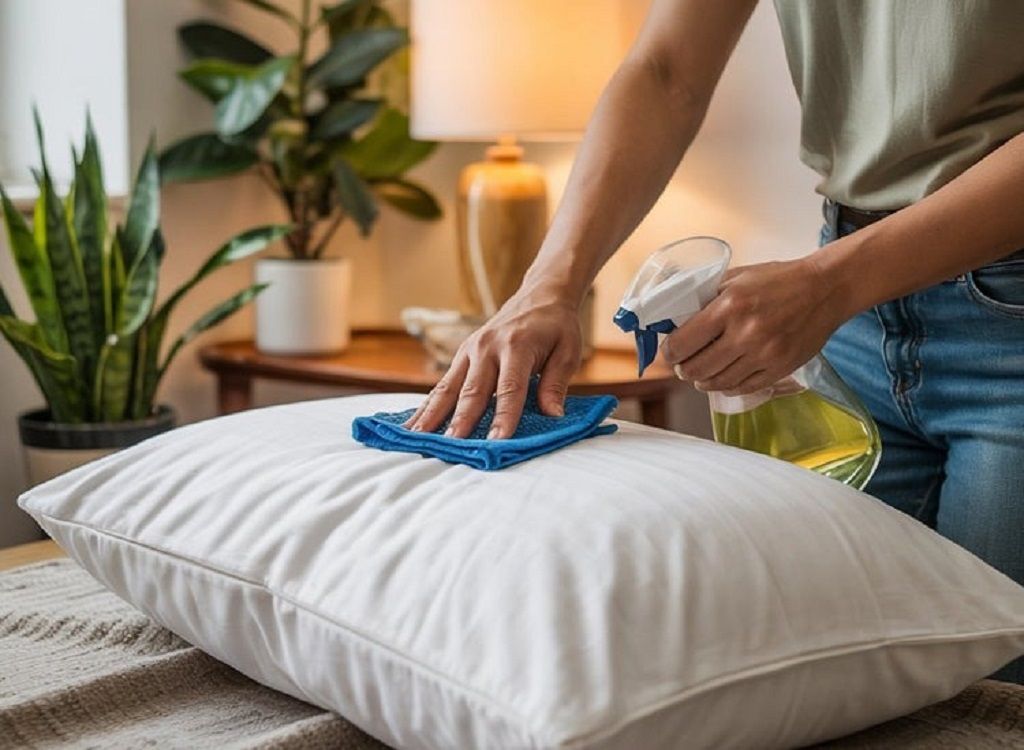
Eco-Luxury Pillows: Sustainable Comfort for Conscious Sleepers
As awareness of sustainability rises, the way we sleep is also transforming. Eco-luxury pillows: sustainable comfort for conscious sleepers are not just a passing trend. They represent a seismic shift in consumer priorities—where comfort meets ethics, and style meets sustainability. Today’s conscious consumer wants more than soft support; they demand transparency, longevity, and a guilt-free sleep experience.
The Evolution of Sleep Products
The global bedding market surpassed $74 billion in 2023, and eco-luxury pillows are capturing a growing slice. According to Statista, 62% of consumers now prefer eco-friendly materials in household products. Pillows, being in daily contact with our skin and respiratory system, are among the most critical items to reconsider. Traditional pillows, filled with synthetic fibers or chemical-treated foams, can emit volatile organic compounds (VOCs) known to cause allergic reactions, respiratory issues, and even hormonal disruption.
By contrast, eco-luxury pillows use safe, biodegradable, and non-toxic materials such as organic latex, kapok, bamboo fibers, and responsibly sourced wool. They’re designed to last longer, support better spinal alignment, and reduce the carbon footprint per use.
What Makes a Pillow “Eco-Luxury”?

Luxury used to mean silk, down, and high thread counts, often with little regard for origin or impact. Today, eco-luxury embodies high-end comfort rooted in ethical choices. Here’s what sets these pillows apart:
- Sustainable Materials: Certified organic cotton covers, GOTS-certified wool, and plant-based fillings are standard.
- Non-Toxic Production: Free from harmful dyes, glues, or chemical flame retardants.
- Durability: Built to outlast synthetic alternatives by up to 5 years longer.
- Ethical Manufacturing: Fair labor practices and local sourcing to reduce environmental impact.
Brands like Avocado, Coyuchi, and Boll & Branch lead the market, offering third-party certifications (such as OEKO-TEX, GOTS, and Greenguard Gold) to ensure their pillows are as clean as they claim.
Comfort Without Compromise
Comfort remains non-negotiable for sleepers, and eco-luxury pillows deliver. For instance, organic latex offers natural responsiveness, adapting to neck and head contours without flattening. Kapok, a silky-soft fiber from the Ceiba tree, mimics down’s plushness without harming animals or triggering allergies.
Additionally, temperature regulation is a major draw. Wool-filled and bamboo pillows are naturally breathable and moisture-wicking, making them ideal for hot sleepers. A study from the University of Sydney found that lower temperatures during sleep improve REM cycles—something eco-luxury pillows support more effectively than synthetic ones.
The Environmental Logic
Every year, over 20 million pillows end up in U.S. landfills alone, many made from petroleum-based polyester or polyurethane foam. These materials take hundreds of years to degrade, releasing microplastics and toxins into the environment. In contrast, an eco-luxury pillow made from natural latex or organic wool will biodegrade within a decade, if not composted sooner.
The carbon savings are also real. Manufacturing an organic pillow uses 60% less energy compared to a synthetic foam counterpart. By switching, the average household can reduce carbon emissions by approximately 12 kg annually per pillow replaced. For a family of four, that’s 48 kg less carbon each year—without sacrificing sleep quality.
The Health Factor: Sleep Clean, Breathe Easy
Allergens, dust mites, and mold often thrive in traditional pillows. Chemical flame retardants can further aggravate asthma or skin conditions. For people with sensitivities, this turns bedtime into a health hazard.
Eco-luxury pillows offer a solution rooted in nature. Organic wool naturally resists dust mites and mildew. Kapok and bamboo fibers deter microbial growth. Moreover, the lack of VOCs means cleaner indoor air quality. According to the Environmental Protection Agency, indoor air can be two to five times more polluted than outdoor air. Choosing organic sleep products is one of the fastest ways to reverse that trend.
Consumer Voices: A Growing Shift
Consumer reviews and market feedback consistently point to rising demand. On Reddit’s sustainability forums and Amazon’s eco-living categories, users praise the long-term benefits of switching to eco-luxury pillows.
One verified buyer shared, “I used to wake up with sinus pressure every day. Since switching to an organic latex pillow, I sleep through the night.” Meanwhile, sustainability advocates argue that these pillows reflect a deeper, systemic change in how people view wellness—not as a luxury, but a necessity grounded in ethical responsibility.
Real-World Example: The Rise of Avocado Green Pillow
Avocado’s green pillow, made with GOLS-certified latex and organic kapok, became a bestseller in under two years. With over 15,000 five-star reviews, the pillow is lauded for being both adjustable and hypoallergenic. The company also offsets 100% of its carbon emissions, sets zero-waste goals, and pays fair wages—making it a model for the eco-luxury pillows: sustainable comfort for conscious sleepers movement.
Solutions That Fit Your Lifestyle
Whether you’re a side sleeper who needs firm neck support or a back sleeper seeking cloud-like softness, there’s an eco-luxury pillow tailored for you. Many brands offer adjustable fills or trial periods, making the switch low-risk. The price may range from $75 to $200, but the value lasts years longer than a $30 synthetic pillow. Consider it a wellness investment.
Read More Also: Six Popular Project Management Software to Know
Frequently Asked Questions (FAQs)
Are eco-luxury pillows safe for children?
Yes. Their natural materials reduce the risk of allergic reactions and respiratory irritants, making them ideal for kids.
Can I wash an eco-luxury pillow?
Many offer washable covers. However, inner fillings like wool or latex typically require spot cleaning or sun-drying.
Do these pillows go flat over time?
Less so than synthetic ones. Natural materials like latex retain their shape longer, often for 4–6 years.
Are they vegan?
Some are. Look for fillings like kapok or bamboo. Wool-based pillows are not vegan but are cruelty-free if responsibly sourced.
Where can I buy them?
Brands like Avocado, Coyuchi, and Saatva sell directly online. Some models are available on Amazon and eco-friendly marketplaces.
What certifications should I look for?
Prioritize GOTS, GOLS, OEKO-TEX, and Greenguard Gold for proven sustainability and safety.
Why are they more expensive?
They use high-quality, certified materials and ethical practices. Their durability often saves money in the long run.
Final Thought
In a world increasingly conscious of its environmental and health choices, eco-luxury pillows: sustainable comfort for conscious sleepers offer a practical, meaningful solution. They bridge the gap between indulgent comfort and responsible living. By choosing these pillows, you invest not only in better sleep—but in a better planet. Let your head rest easy, knowing your choices reflect both self-care and world care.





